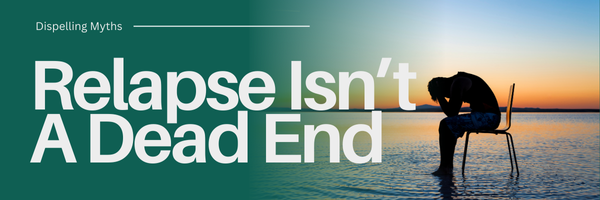Myth #2: If someone relapses, they’re a lost cause.
Relapse is often misunderstood as a failure or lack of desire to remain sober. Relapse simply means a return of symptoms. The process of relapse starts WAY before the person uses or drinks again. It usually appears as emotional instability…or feeling “off the beam,” or unbalanced.
Emotional relapse often starts as trouble sleeping, feeling irritable or angry, being short with people around you. These people will sometimes notice and ask if everything’s okay, and we will assure them it’s okay…even when it’s not; thus, passing up a great chance to halt the relapse.
Preventing relapse while it’s still in the emotional stage is done by trusting someone and talking about your feelings. This is why honesty was chosen as the foundation for popular 12-step programs.
Since substance use disorder (SUD) is a chronic condition, there is no cure and it must be managed accordingly. Relapse is common in many chronic conditions: Type 2 Diabetes, for example, is a similar chronic condition requiring vigilance and lifelong treatment. If someone neglects their diet, their medication, and their A1c gets high, they have relapsed. No one considers them a failure or thinks “they don’t want it badly enough.” The same can be said with hypertension, cholesterol problems, and many others.
At Second Chances we view relapse within the larger context of treating a complex, multidimensional condition that affects not only the person suffering, but also their entire family system. If you’re tired of feeling lost and hopeless with relapse, know that we are always here and there’s a different way you can live. Our staff can show you how relapse can be conquered on your path to an improved you!


Recent Comments